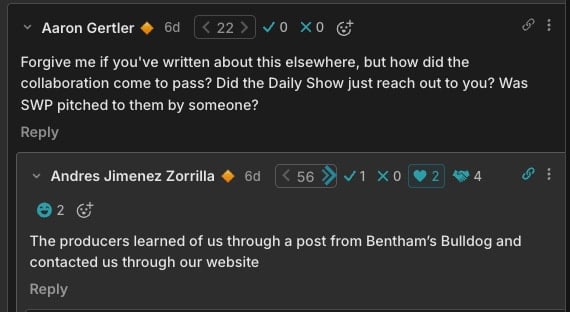Despite the many successes of the Spanish-Speaker community, two Spanish-Speaking organizers I greatly respect have been repeatedly discouraged from pursuing research in their areas of expertise.
Eg a grantmaker suggested them instead working on the translation of key texts to promote Effective Altruism because it might be easier to balance with their other community-building work, despite having no expertise in translation and there already being a translation project in the community. Their grant request was subsequently put on hold.
Other members of the international community have echoed the advice in different forms, to the point where the organisers feel upset and disheartened.
This dynamic challenges the local organisers' expertise and awareness of the situation of their local community. On a meta-level, this (together with my previous impressions of the topic) suggests to me that the community might need to tone down EA branding promotion in support of doing area-specific work.
They have also been encouraged to move to the main EA hubs to gain legitimacy and experience. While this seems hard to fix, it saddens me that there is so little support for capable people who want to develop their career locally.
Additionally, I am aware of people outside the Spanish-speaking community who have been encouraged to pursue area-specific projects in LatAm, despite lacking experience in the area or local knowledge. This hinders the intellectual independence of small communities and discourages local efforts. Even though I am glad that this work is being done, this might be a symptom of systematic misprioritization.
All in all, these are isolated issues and probably better explained by miscommunication and differences in judgement. However, I believe we should have a lower bar for raising critiques and be more transparent about them — this is my targeted contribution to move the culture of EA in that direction.
There is a deeper conversation to be had about the relationship between the international EA community and EA in LatAm and Low and Middle-Income Countries in general. It is not my place to host that conversation, though I hope that by speaking up and seeing the reaction from the community I can help others feel more confident bringing up the issues that worry them.
As a takeaway, please do not discourage young professionals from pursuing area-specific work, and seek feedback from local organizers about their community’s needs. I also want to stress that grassroots efforts led by dedicated professionals are disproportionately more likely to succeed.
Thank you to Agustín Covarrubias, Laura González, Claudette Salinas, Michelle Bruno, Sandra Malagón, Ángela Aristizábal, Pablo Stafforini and Catherine Low for feedback and help editing the post.




So the scenario was something like:
Is that right? (I assume you're being vague because you want to keep the stories anonymous, but I'm having difficulty understanding as a result.)